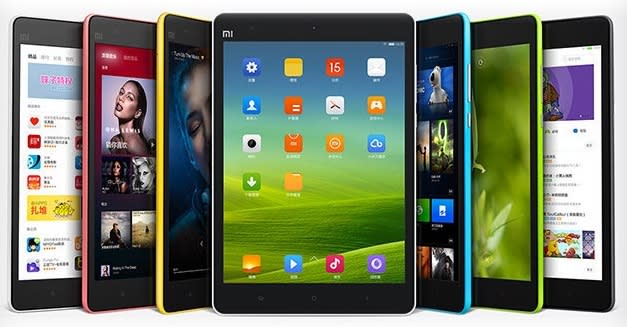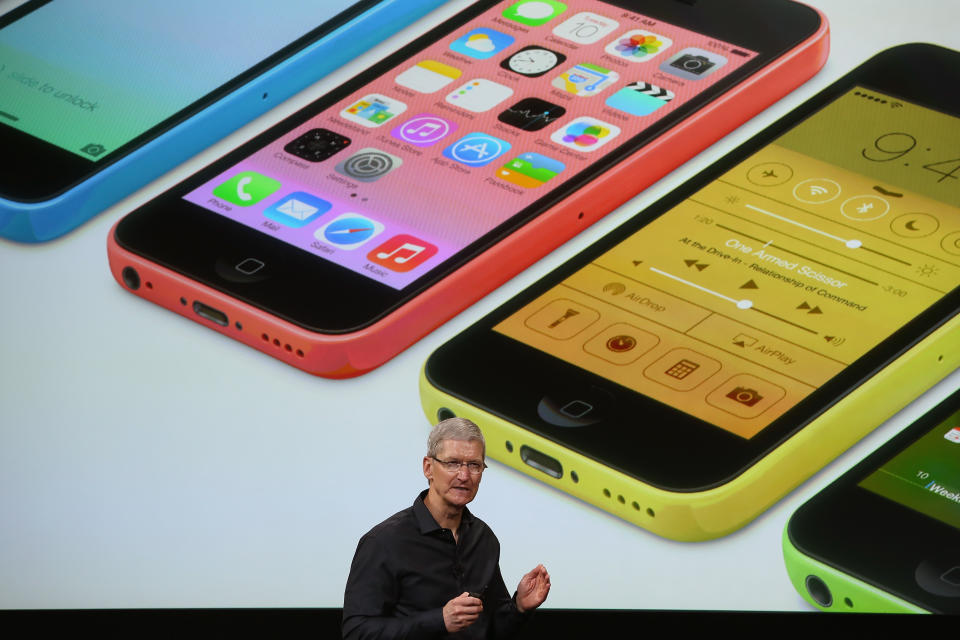Xiaomi's Hugo Barra emphatically denies company is copying Apple; evidence strongly suggests otherwise

Chinese manufacturer Xiaomi swears it's not in the business of copying Apple. In fact, the allegations have apparently become so loud and ever-present that former Google executive and current Xiaomi executive Hugo Barra is "sick and tired" of it.
The ongoing thread of Xiaomi taking cues from the good folks in Cupertino reached a comical peak yesterday when Xiaomi CEO Lei Jun got up on stage to announce the company's new Mi Band, a extremely affordable fitness band and sleep tracker.
Behold, the slide that got everyone talking.
No they didnt? Yes, they did! The iconic "one more thing" slide. Priceless - Xiaomi Mi4 pic.twitter.com/bD9UamXVBl
- Sascha Pallenberg (@sascha_p) July 22, 2014
Okay, it's not as if Apple has a monopoly on the English language. And hey, given how boring corporate presentations tend to be, who really cares about a company borrowing some of the secret sauce that helps make Apple product announcements so engaging. And surely, there's nothing puzzling about Lei Jun donning jeans a black t-shirt and jeans at every product launch a'la Steve Jobs, right?
The thing is, Xiaomi's adoration for Apple extends far beyond the aforementioned "one more thing" slide. Indeed, many of Xiaomi's products, in addition to the most minute details of their advertising materials, seem to rely quite heavily on Apple's own work.
For example, here's the Xiaomi Mi Pad which has the same screen size, resolution, and all- around design as the iPad Mini.

Hmm, where I have I seen these colors before? Canary yellow, light blue, pastel pink... they all look so familiar.
Ah yes, here we go.

And in case you're wondering, the type plastic used on the Mi Pad is the exact same one that Apple uses on the iPhone 5c.
And here we have a commercial for the Mi Pad that also looks somewhat familiar.
But don't tell that to Barra because, again, he's sick and tired of the allegations.
As Barra explained to The Verge, the notion that Xiaomi is copying Apple is nothing more than a "sweeping sensationalist statement" that people make because "they have nothing better to talk about."
"If you have two similarly skilled designers, it makes sense that they would reach the same conclusion," he argues. "It doesn't matter if somebody else has reached the same conclusion" about, for example, a 4:3 screen ratio being preferable to the more cinematic 16:9 that most Android tablets offer. Mi is focused on making the best products that it can and refuses to shy away from a good idea just because Apple might have done it already. "We're not copying Apple's products. End of story."
That's all well and good, but that's hardly the end of the story. If anything, it's missing some very important parts of the story.
About a year ago, the New York Times article profiled Xiaomi CEO Lei Jun as an unabashed fan and ardent follower of Apple in general and Steve Jobs in particular. Jun told the Times that he read a book about Jobs while in college and was so impressed that he "decided to emulate him."
Mr. Lei, for his part, hardly discourages comparisons to Apple and Mr. Jobs. And why would he? Founded by a group of Chinese engineers three years ago, his company sold seven million mobile phones last year by using designs that mimic the look and feel of the iPhone and using marketing that seems right out of Apple's playbook.
And speaking of Apple marketing, I hopped on over to Xiaomi's website and stumbled across the company's Redmi Note.

It almost looks like a Beats inspired iPhone.
And lastly, John Gruber draws our attention to a photo of the Xiaomi Mi 3 camera lens which, as it turns out, is the icon Apple uses for Aperture, albeit without the "Designed by Apple in California" tag.
The Mi 3:

And the Aperture icon:

But again, if you see Hugo Barra around town, make sure not to mention this to him. He's pretty sick and tired of these false allegations.

